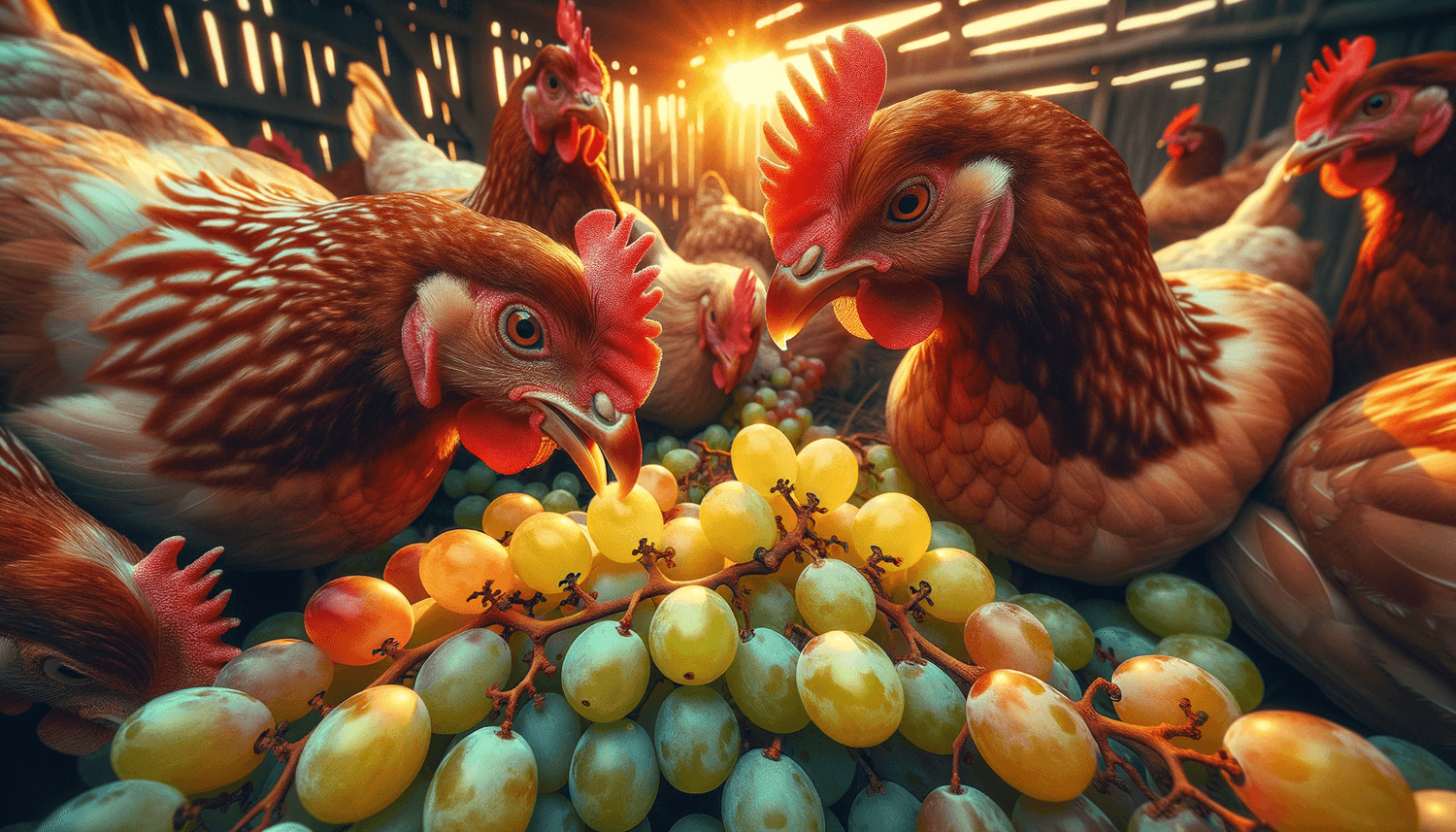Yes, chickens can eat grapes. Grapes are a safe and nutritious treat for chickens, providing vitamins, antioxidants, and hydration. However, they should be given in moderation due to their sugar content, which can lead to obesity and related health issues if overconsumed.
Quick Summary
- Chickens can eat grapes.
- Grapes provide vitamins and antioxidants but are high in sugar.
- There are benefits such as hydration and potential risks including obesity.
- Grapes should be fed in moderation and seedless varieties are preferred.
Overview of Grapes
Grapes are small, round fruits that are rich in water content, vitamins, especially vitamin C, and antioxidants. They come in various colors including green, red, and purple, and can be seedless or contain seeds. The natural sugars present in grapes make them a tasty treat for chickens.
Benefits and Risks of Grapes for Chickens
Grapes can be beneficial for chickens as they provide hydration and are a source of vitamins and antioxidants which are vital for a chicken’s immune system. However, the high sugar content in grapes poses the risk of weight gain and potential obesity-related complications if provided in excess. Furthermore, chickens may choke on whole grapes, so they should always be cut into smaller pieces or crushed before serving.
Feeding Guidelines
Chickens can be fed grapes several times a week as a treat, making up no more than 10% of their overall diet. You should remove any seeds from the grapes and cut them into halves or quarters to prevent choking. Always provide fresh, clean water and ensure their primary diet consists of balanced chicken feed.
Alternatives
If grapes are unavailable or you wish to provide a variety, other fruit options include chopped apples, berries, and melon. These can offer similar nutritional benefits without the risk of excessive sugar intake.
Expert Opinions
Poultry nutritionists and veterinarians commonly agree that grapes, when given in moderation, can be a healthy snack for chickens. It is recommended to follow feeding guidelines and observe the chickens for any adverse reactions when introducing any new food to their diet.
Frequently Asked Questions
After learning that chickens can eat grapes, some common questions might emerge. Below are answers to these potential queries.
Are grapes better than other fruits for chickens?
Grapes are not necessarily better than other fruits; they are simply a healthy option among many. They should be a part of a varied diet including other fruits and vegetables.
Can chicks eat grapes as well?
Chicks can eat grapes, but due to their small size, grapes must be cut into very small pieces to prevent choking. Introduce grapes sparingly to ensure chicks are getting the correct nutrients from their starter feed.
How often can I feed my chickens grapes?
Chickens can have grapes several times a week as part of a diverse diet. It is crucial not to overfeed grapes to prevent sugar overload and nutritional imbalances.

















